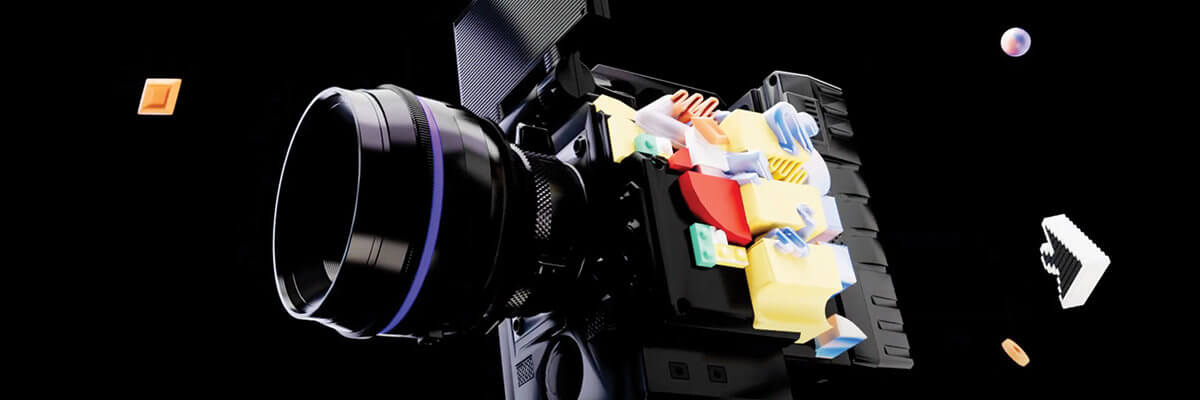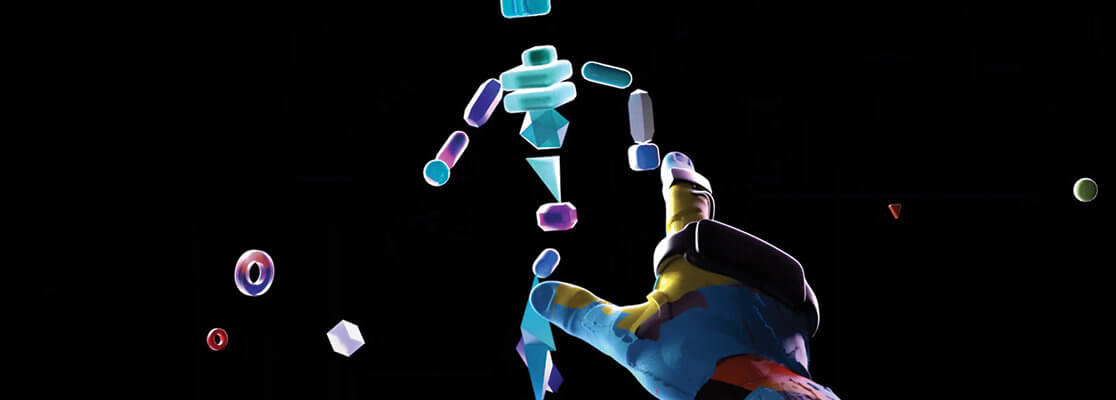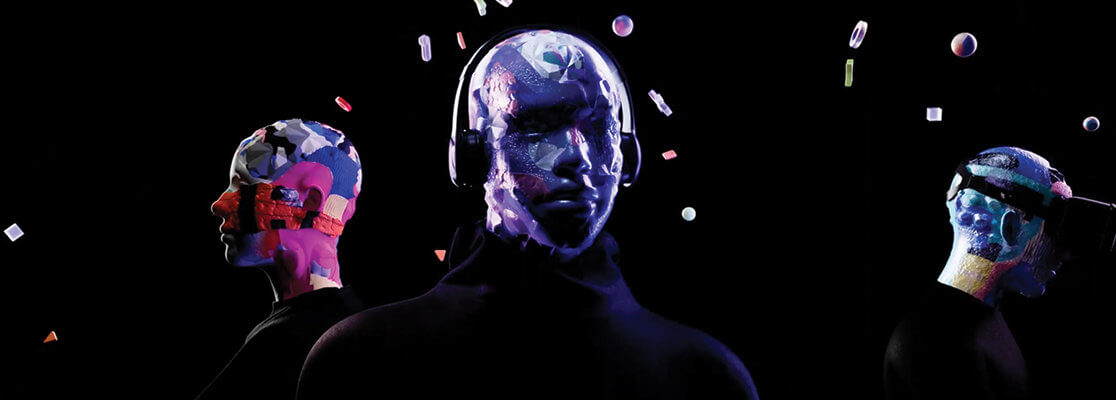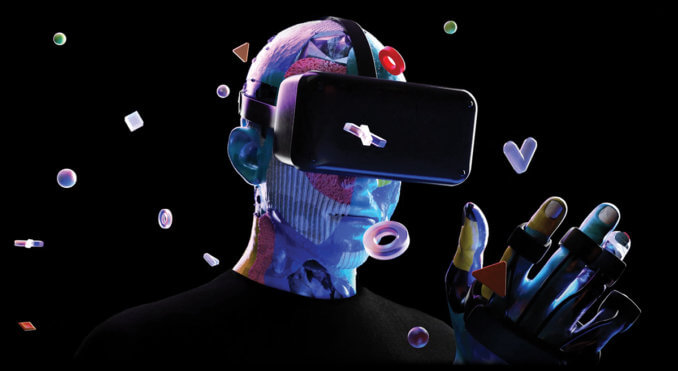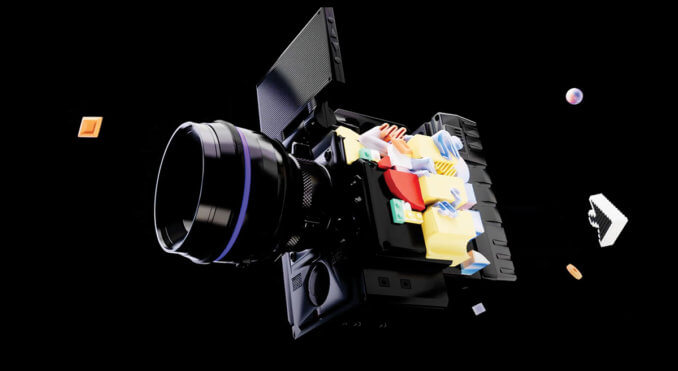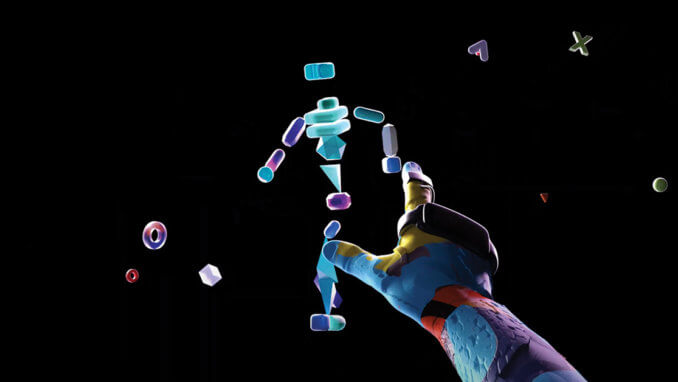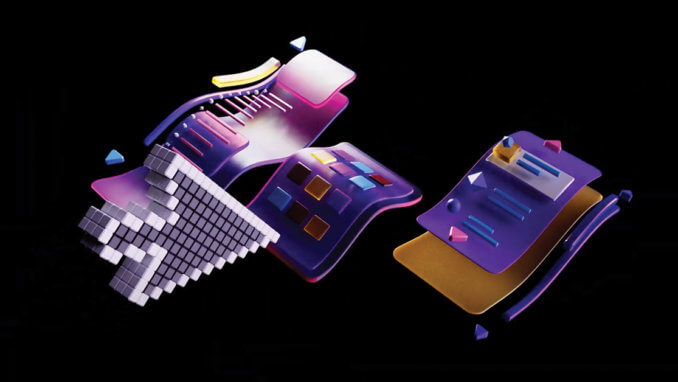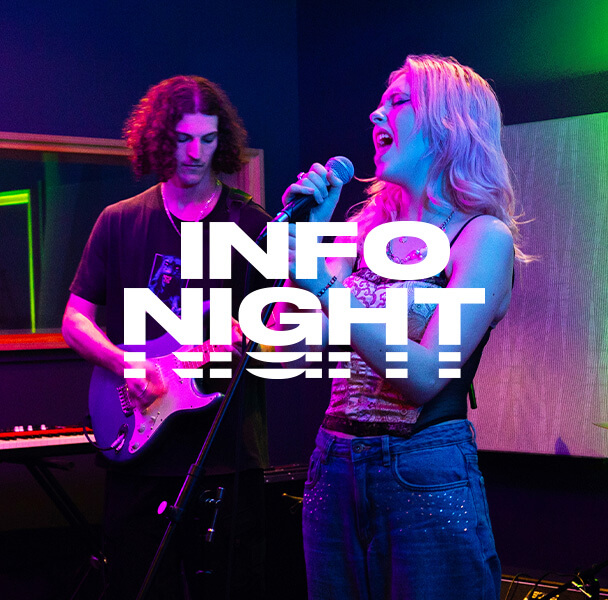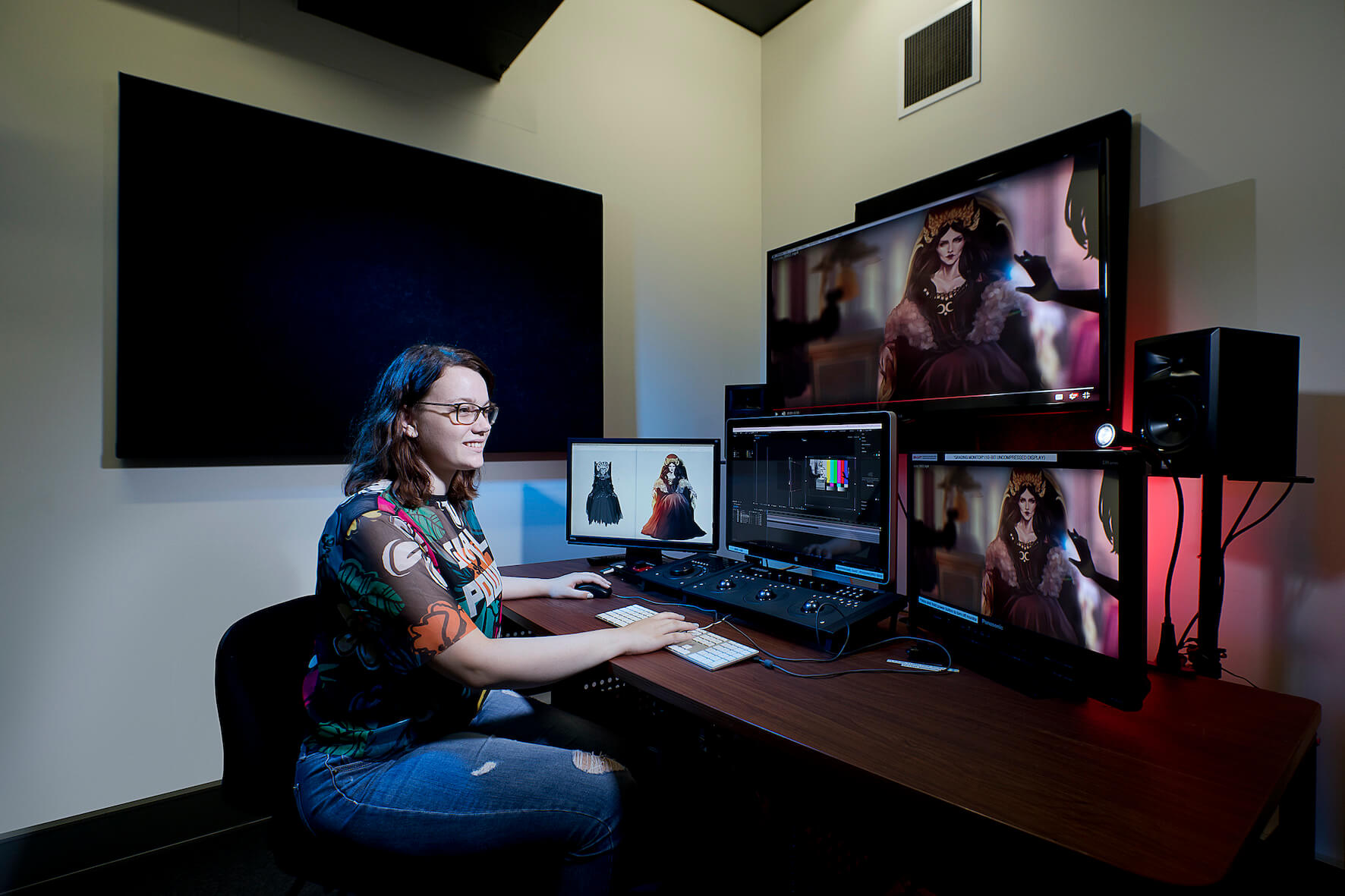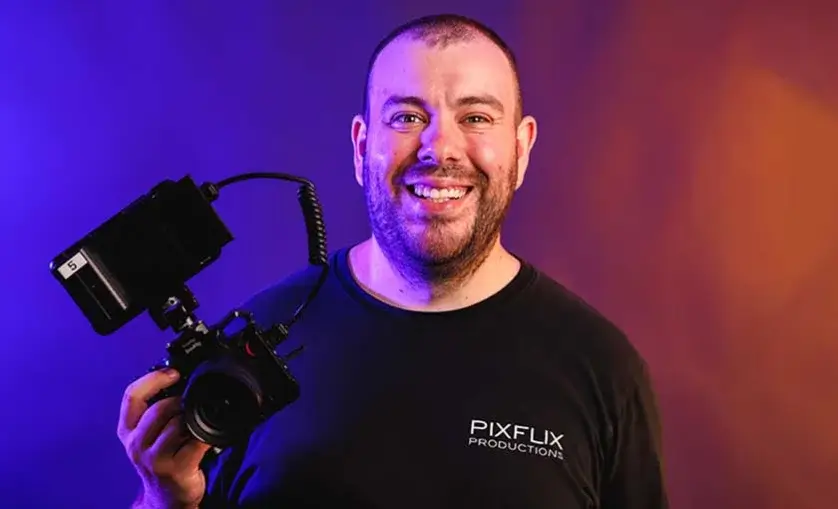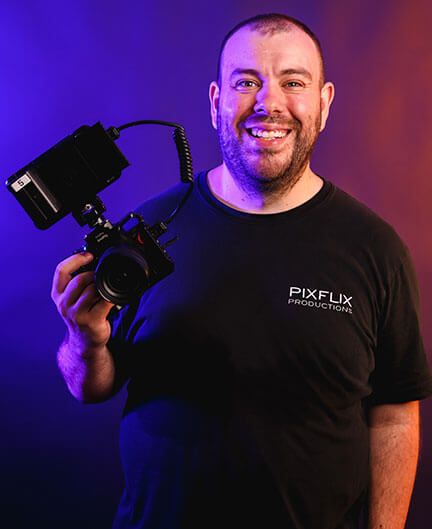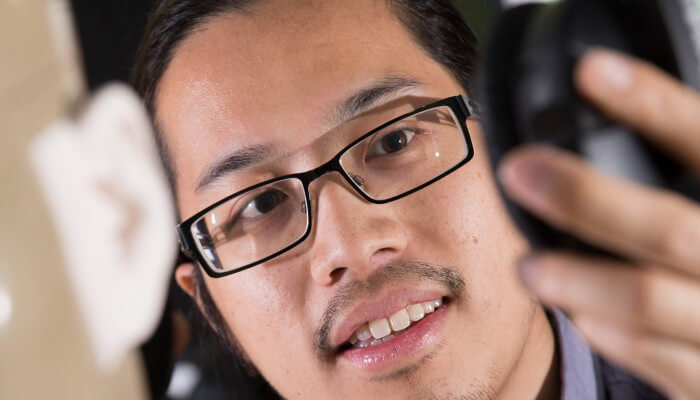Graduate Certificate in Creative Industries
Realise your creative potential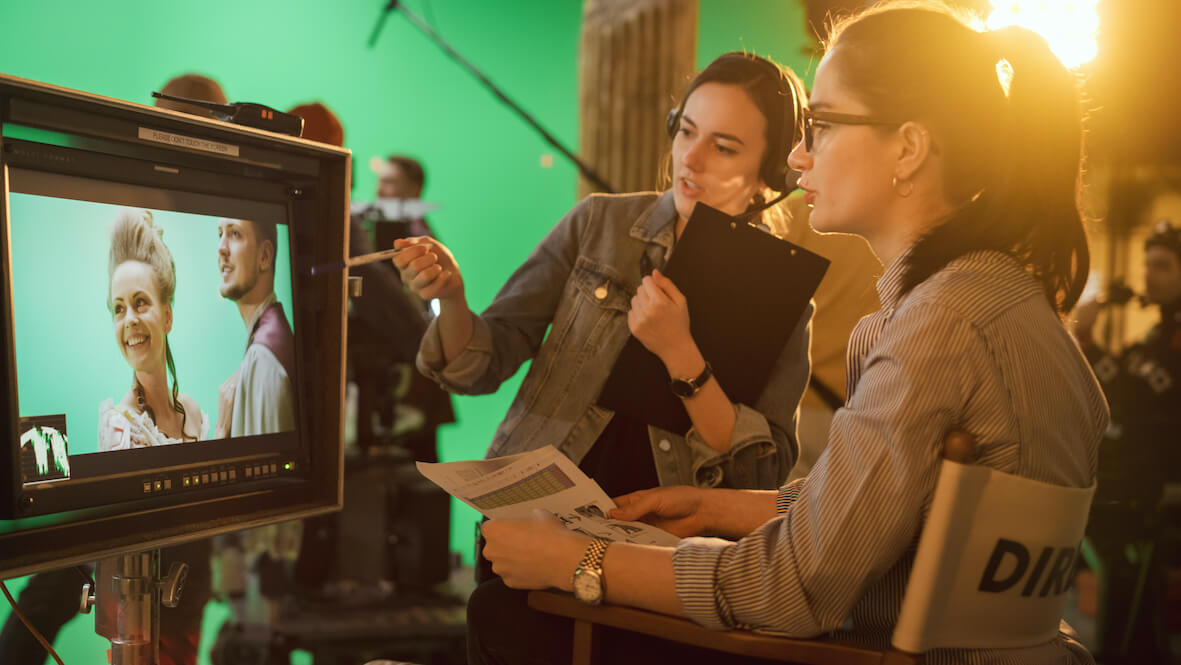
Units x Costs ($AUD)
4 x $2,686
Indicative Total Course Fee*
$10,744 AUD
Plus Student Services and Amenities Fee (SSAF)
* The Indicative Total Course Fee & Indicative Annual Course Fees reflects that students are charged fees on a per unit basis and the fee for a unit may increase.
For more information view the SAE Fee Schedule or visit the Fee & Payment page.
Units x Costs ($AUD)
4 x $3,192
Indicative Total Course Fee*
$12,768 AUD
Plus Student Services and Amenities Fee (SSAF)
* The Indicative Total Course Fee & Indicative Annual Course Fees reflects that students are charged fees on a per unit basis and the fee for a unit may increase.
For more information view the SAE Fee Schedule or visit the Fee & Payment page.
Complete the course in one, 40-credit point trimester (approximately 3 months).
Complete the course in one, 40-credit point trimester (approximately 3 months).
If you want to take a little longer, that’s ok too. We’ll help you work out the best study load to suit your needs.
Note: Part-time is not available for international students.
May 2024
September 2024
February 2025

Career outcomes
How will this course help my career?
This qualification will help your career forward and enhance your employment prospects. You will create fresh career options, deepen your industry knowledge, and develop your influence and authority within the creative industries.
Why study a postgraduate qualification from SAE?
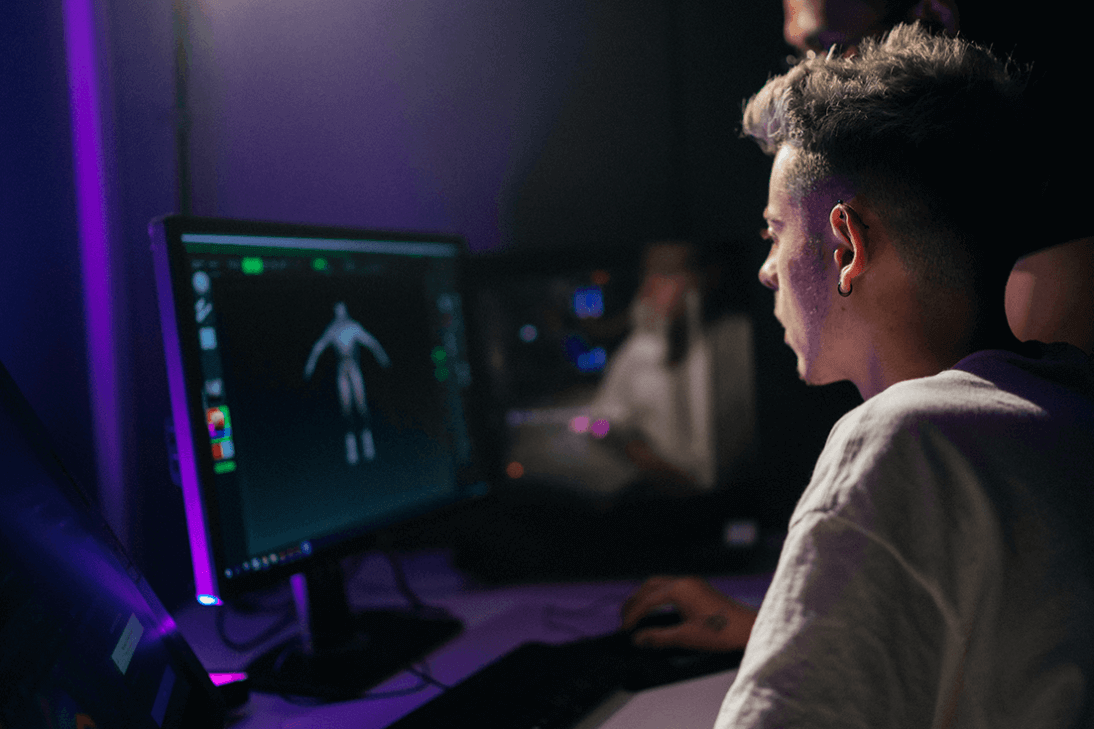
What our students say about SAE
THE NEXT STEP IN YOUR CAREER BEGINS NOW
Course Structure
The Graduate Certificate in Creative Industries is stage 1 of the 3 stages of the Master's course.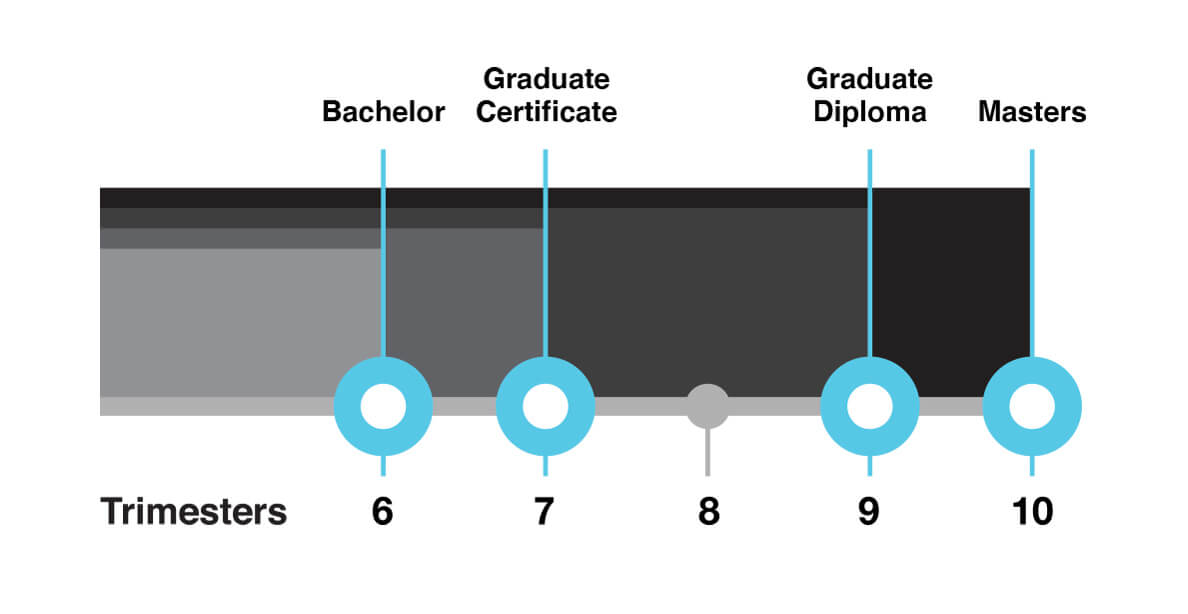
This Unit operates as a combination of supervised studio time, and peer and mentor feedback sessions. Your mentor will be an expert in their field and possess industry experience.
This unit introduces the concept of creative practice research, including developing an understanding of the creative research paradigm, methodology and methods, and the production of knowledge in and through practice. Learning takes place through rapid creative ideation, discussion, academic writing including the production of a literature review, and the skills to find and critically engage with authoritative sources.
This Unit will introduce students to the fundamental principles and processes of leadership and entrepreneurship. It will introduce the foundations of business and leadership in a way that is relevant to emerging entrepreneurs and those pursuing positions of responsibility within the creative industries. It will explore leadership styles and their context, from self-leadership to servant leadership, from transactional leadership, to transformational leadership and what these leadership styles mean for developing a business. Entrepreneurial resources and terminologies will be covered so that students can plan their first steps and strategies as an entrepreneur in the creative industries.
This unit explores a variety of storytelling structures that operate across different moving image media. The focus is on storytelling techniques that engage audiences emotively. Within this module, you will participate in analytical and creative activities that develop your ability to develop emotional journeys and build audience investment in your stories.Before anything is available to watch, listen to, read, or play with, you have to go through a process of creative development. This stage often begins with a story you want to tell, a message you want to communicate, or a topic you want to explore. To ensure you create a work that resonates with others, you need to think about the audience experience. In this Unit, you will develop storytelling techniques that influence the most successful creative media projects.
This unit focuses on the clarification of artificial intelligence tools relevant to Design professions, demonstrating the current adaptation and implementation of specific AI tools within existing design processes. Initial discussions and explorations will define major terminology and technologies associated with artificial intelligence, and more specifically computer vision, allowing students to effectively analyse relevant AI tools. As a cohort, students will be provided with repositories and information channels to get up to speed, and maintain currency, with the rapid advancement of AI.
Each lesson will provide foundational knowledge of AI technologies, before providing practical exercises utilising targeted technologies for experimentation and reflection. As lessons progress, it is expected students will begin to explore alternate technologies and applications of AI throughout their experimentation, critically analysing the successes and failures of produced design solutions.
Confidence, understanding, and experience are critical when considering the potential impacts of novel AI integrations within Design professions. Students are provided with the opportunity to embrace playful experimentation, producing a considerable oeuvre to substantiate experience.
Upon gaining practical experience with varying AI technologies, the focus will return to existing design processes to consider the potential for artificial intelligence to be incorporated into these processes as an ethical enhancement.
This unit is designed to develop or extend skills in music composition. You will encounter a diverse range of sounds, practices, concepts and strategies related to the composition of music, and produce music compositions for a variety of contexts, and employing a variety of approaches.
CIM400 Music Composition is a hands-on unit, focusing on the creative application of concepts in a portfolio of works that respond to project briefs. Through these projects, you will compose music using various compositional techniques and technologies, and encounter a range of socio-cultural theoretical perspectives of the uses, context and meaning of music.
For this unit, you will need to have some way to produce a music composition (for example score, notation software, musical instrument, DAW). You will not be taught to use specific software, but SAE has subscriptions for commonly-used software and resources to enable you to improve your software knowledge.
The course requires foundational knowledge and terminology associated with western music theory, but is not dependent on knowledge of a particular style, approach, or theory. Students new to music are required to complete a short online primer course to ensure that they have familiarity with terms and concepts that will enable them to succeed in the unit (for example Music Theory for Songwriters: The Fundamentals - Julian Velard).
This unit provides strategic guidelines for students who want to learn how to develop a creative project that can bring about social change in our community. In defining the nature and purpose of social impact in media productions, this unit identifies exactly what elements constitute an ‚Impact production‚. Each lesson within the unit focuses on a different element of impact resource production and management. Collectively, these elements form an Impact campaign‚ ready for execution.
Reflecting current industry production standards and collaboration techniques, this unit is relevant to all creative disciplines.
With social and environmental concerns affecting so many people around the world, impact productions that resonate with audiences have become increasingly important as vital communication tools across most industries.
For students who aspire to be agents of change, this unit will empower them with the knowledge, understanding, and practical skills required to portray social issues and reveal concerns in creative ways that ultimately serve to reform cultural and societal values.
Learning in this unit happens through reading and discussion of intercultural theory, exposure to the aesthetics and ontologies of different cultural texts, and assessments and activities that require you to reflect on your own cultural positioning in relation to other cultures. While engagement with theory is important for establishing the key concepts for discussion, it is through the embodied engagement with different forms of music, film, design, games, and other cultural texts that we come to appreciate the full range of human experience, gaining valuable insights into our own subjectivity and the ways in which we engage with others.
In this unit, you will initially gain clarification of AR and VR by defining each medium with respect to Mixed-Reality and the Virtuality Continuum. Each reality employs explicit methods and techniques impacting presence and immersion to deliver user experiences through the integration of computer-generated visual information.
The unit introduces the theories and applications of user-experience design principles relevant to interactive Augmented and Virtual Reality experiences, and the practical knowledge required in the technical production and development of introductory experiences. Practical, project-based learning activities will be completed in parallel with theoretical discourse and collaborative research. Blue-sky thinking and speculative design are encouraged to allow for the conceptual development of ideas.
The aim of this module is to develop your screen storytelling skills through the writing and directing of a short narrative scene. You will participate in a range of creative activities to strengthen your practical screenwriting and directing skills and deepen your capacity to communicate story through cinematic form. Through scholarly analysis and reflective practice you will gain understanding of authorial techniques to engage audiences emotively with your screen stories.
In FLM420 students will create an original fiction or non-fiction short narrative film of any genre, which they will write and direct for delivery in week 12. In the first six weeks students will be introduced to a range of storytelling concepts and practical screenwriting skills to assist in the development of a short screenplay. The second half of the module focusses on directing, from pre-production through to post production, and realising an authorial vision. Scholarly research, analysis, iteration and feedback processes will support students in the delivery of a short cinematic project that resonates with an identified audience.
This unit focuses on ways to leverage your creativity in various formal and informal educational contexts and introduces you to a range of theories and methods for teaching creativity and creative teaching beneficial to adult and lifelong learners.
Through critical reflection and inquiry, this Unit provides you with the opportunity to develop new perspectives on your own practice and apply these in real world scenarios by conducting a guided pedagogical inquiry into creative media practice in an educational context that is most relevant to your employment and career trajectory. Such contexts may include, but are not limited to: vocational training, tertiary education, community workshop facilitation, private studio tuition, online learning scenarios and skill-sharing platforms.
Your Unit will be delivered through a series of online learning materials including text-based readings and audio-visual materials. Forum discussions, webinars and other collaborative activities will support the development of a community of inquiry where ideas and concepts are explored in greater depth with your mentor and peers.
This unit is designed to develop or extend skills in animation. You will encounter a range of concepts, and strategies related to the production of animation, and produce projects for a variety of contexts, and employing a variety of approaches. Animation Projects is a hands-on unit, focusing on the creative application of concepts in a portfolio of works that respond to project briefs. Through these projects, you will be developing animations for a variety of contexts, using various animation techniques, and employing a range of theoretical lenses for understanding the uses, context and meaning of animation.
For this unit, you will need to have the ability to produce animations (for example, knowledge of 2D or 3D animation software). You will not be taught to use specific software, but SAE has subscriptions for commonly-used software and resources to enable you to improve your software knowledge.
The course requires foundational knowledge and terminology associated with animation practice, but is not dependent on knowledge of a particular style, approach, or theory. Students new to animation are required to complete a short online primer course to ensure that they have familiarity with terms and concepts and software basics that will enable them to succeed in the unit
This unit is designed to develop or extend skills in audio production. You will encounter a range of concepts, and strategies related to audio, and produce projects for a variety of contexts, and employ a variety of approaches.
AUD430 Audio Projects is a project-based unit, focusing on the creative application of concepts in a portfolio of works that respond to project briefs. Through these projects, you will be developing audio for a variety of contexts, using various techniques, and employing a range of theoretical lenses for understanding the uses, context and meaning of audio.
For this unit, you will need to have the ability to produce audio artifacts (for example, knowledge of audio DAW software). You will not be taught to use specific software, but SAE has subscriptions for commonly-used software and resources to enable you to improve your software knowledge.
The course requires foundational knowledge and terminology associated with audio practice, but is not dependent on knowledge of a particular style, approach, or theory. Students new to audio are required to complete a short online primer course to ensure that they have familiarity with terms and concepts and software basics that will enable them to succeed in the unit (for example Introduction to Pro Tools). Students wishing to use campus facilities such as studios and recording equipment, may need to complete additional training with their campus tech team.
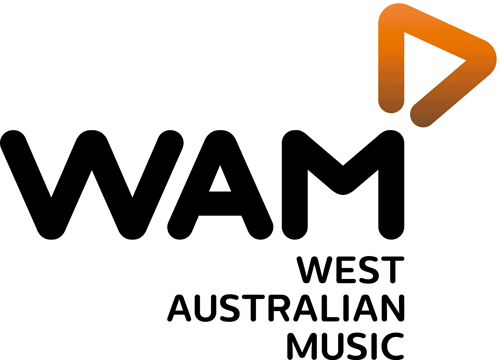


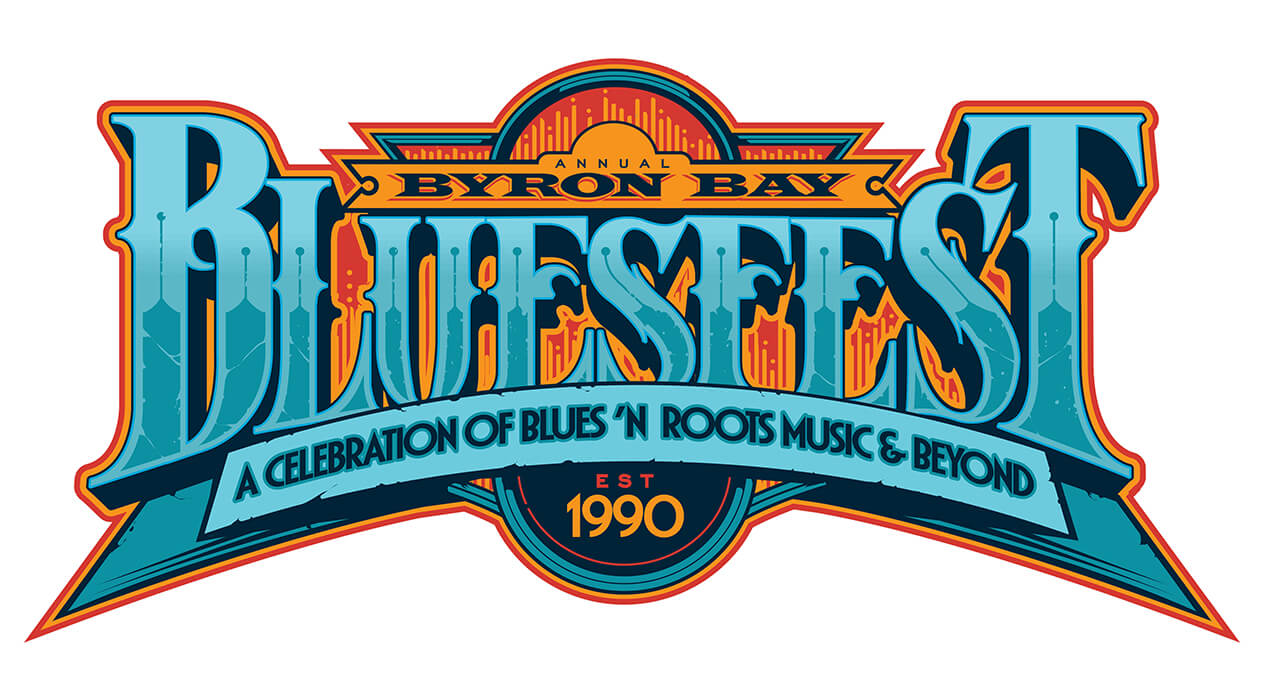
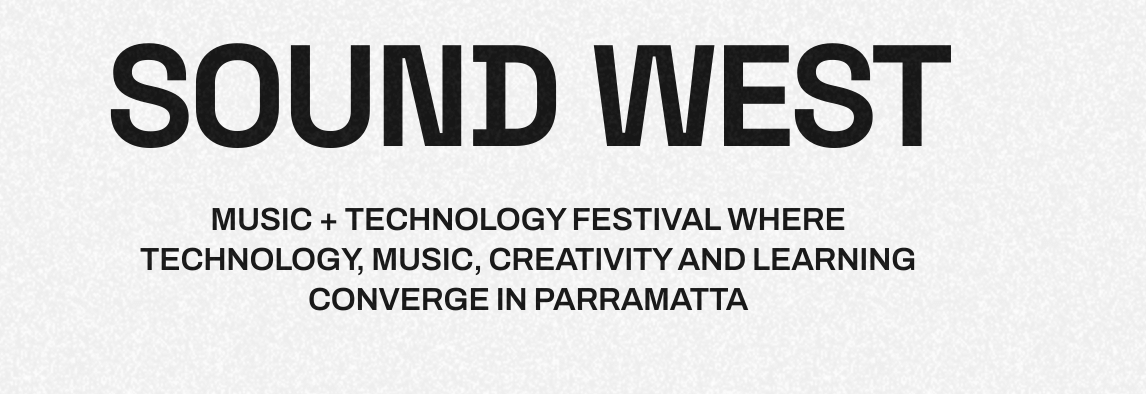
What you will learn
Student Spotlight

Easy transition into higher-level postgraduate courses
This means that when you complete an SAE Graduate Certificate in Creative Industries you will be awarded the maximum credit points available, providing you with the opportunity to seamlessly transition into the higher-level postgraduate qualifications if you choose to do so.
Have a question and don’t know where to start?
Fill in the General Contact form and a representative will be in touch soon.
For information on tuition fees visit the Fee Schedule section of the website.
Campuses are open, with staff onsite to support students who want to access computer labs and equipment. In addition to scheduled classes, optional practical sessions will be scheduled on campus to support audio, film, animation and capstone projects. Lecturers will provide students with information about these sessions at the beginning of the trimester.
CREDIT AND RECOGNITION OF PRIOR LEARNING
SAE may recognise your prior learning and may grant credit towards satisfying the requirements for a higher-level program. This is applied where previous learning is considered equivalent to the content and learning outcomes prescribed for units within the program.
For full details, please refer to SAE's policy on recognition of prior learning and credit transfers.



